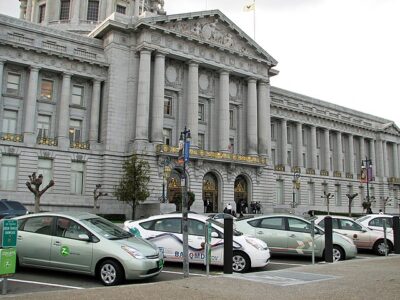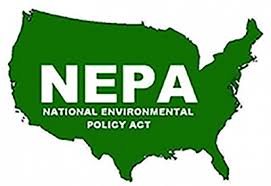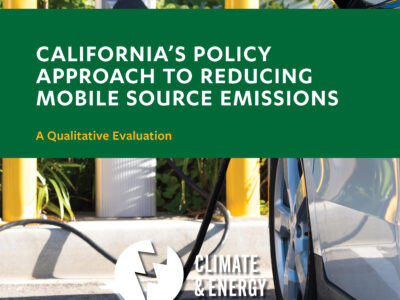Technology’s Role in Governing Sustainable Food Systems
Digitalization is altering how we understand the environment and act upon issues of sustainability.
This article is a summary of the third interview in a three-part interview series that explores how digitalization is reshaping environmental governance. I spoke with Sake Kruk who’s a Ph.D. researcher at the Environmental Policy Group at Wageningen University, Wageningen, Netherlands. His research examines how digital technologies are ushering in a new form of environmental governance within food systems, specifically as it relates to sustainability assurance within a...
CONTINUE READINGAre California Cities Ready for an Equitable EV Transition?
How well are cities planning for the transition, and how can we track readiness?
A recent report from ACEEE reinforces California's leadership in vehicle electrification--at the state level, California's EV policies, incentives, and supporting strategies outpace the closest competitors by a significant margin (and most pro-electrification states' programs owe their design and federal authorization to California): Source: ACEEE, 2023 Transportation Electrification Scorecard. But with Californ...
CONTINUE READINGNEPA 2.0 and Transmission Projects
Will the new NEPA provisions speed approval of urgently needed projects?
In terms of the energy transition, the most important question about the recent NEPA amendments is whether they streamline permitting for transmission projects. The answer is complicated. We can divide transmission projects into two groups. The first group consists of transmission projects where federal involvement is limited to specific segments, such as stream crossings requiring approval by the Army Corps or transit across public lands. The NEPA amendments apply wi...
CONTINUE READINGHow Much Credit Can California Take for the Electric Vehicle Revolution?
New CLEE report responds to criticism over how the state quantifies policy impacts.
The California Air Resources Board (CARB) is the state’s lead agency on zero-emission vehicle policy, from its first-in-the-nation mandate on automakers to produce zero-emission models to its wide-ranging incentive programs, among other policy approaches. But in 2021, the California State Auditor released a report criticizing how CARB measures the effects of its zero-emission vehicle policies. Specifically, the report concluded that the agency “has not done enough to...
CONTINUE READINGHaving the Fox Guard the Henhouse?
Delegating Environmental Reviews to Project Sponsors
One of the most important provisions, of the new NEPA law, § 107(f), allows the lead agency to delegate preparation of environmental reviews to project applicants. There are unsettled questions about when this provision applies and how it interfaces with other parts of NEPA. There are clear conflicts of interest in assigning this role to the project applicant. Section 107(f) reads as follow: “A lead agency shall prescribe procedures to allow a project sponsor to p...
CONTINUE READINGHow Sackett Will Hurt Endangered Species In California
And what the state can do about it
Others have already posted about the Supreme Court’s Sackett decision that significantly cuts back on the geographic scope of Clean Water Act Section 404 regulation protecting wetlands. Understandably, there has been a lot of attention to the direct effects of that change, which means that federal permitting will no longer apply to many wetlands in the United States. In California, the state government has argued that because of California state law protecting wetl...
CONTINUE READINGMapping City Priorities for an Equitable EV Infrastructure Rollout
How can cities identify high-priority, high-feasibility, high-utility sites?
As state regulators and auto manufacturers begin the drive toward 100 percent zero-emission vehicle sales by 2035, leaders across California face a daunting challenge. How can they ensure that all Californians–not just those who can afford a new EV and a charger in their garage–have access to affordable, reliable, and convenient vehicle charging that meets their travel needs and improves quality of life and mobility (or, at a minimum, does not diminish them)? It’s ...
CONTINUE READINGUCLA Clinic Submits Amicus Brief in Water Rate Design Case
A trial court decision invalidated the City of San Diego’s tiered water rates. This amicus brief by the Environmental Law Clinic on behalf of California Coastkeeper Alliance and Los Angeles Waterkeeper argues a reversal is needed to pursue conservation and equity.
Court challenges to the use of tiered water rates in California are threatening the state’s own water conservation and affordability goals. That’s what’s at stake in a case called Patz v. City of San Diego. Climate change is intensifying California’s hydrologic variability and exacerbating the state’s water supply challenges. Dwindling water supplies have led to a substantial increase in the retail cost of water over the last decade. Drought-induced water...
CONTINUE READINGCentralizing Environmental Reviews under NEPA’s New Section 107
Sec. 107 is the key permitting reform applying to major projects. Will it work?
The 2023 Amendments to NEPA tweak current regulations in various ways in the name of permitting reform. Those changes make it easier to exempt smaller projects or cover them with programmatic impacts statements. The key issue, however, is going to be the effectiveness of new section 107, the main provision aimed at large-scale projects like transmission lines. That makes it crucial to understand how section 107 changes current requirements. With that in mind, I sat ...
CONTINUE READINGThe Riddle of the Maldives
The Maldives is one of the nations most vulnerable to rising sea levels. So, why is climate change not a topic of discussion here?
It was the site for one of the most iconic climate policy photos. In the run-up to the Copenhagen climate negotiations in 2009, President Mohamed Nasheed held a cabinet meeting in scuba gear 20 feet underwater to show what awaited the low-lying island nation of the Maldives if serious action were not taken to reduce greenhouse gases. Nasheed followed up with a pledge that the Maldives would be the first carbon neutral country by 2020. The photo went viral and made ...
CONTINUE READING









